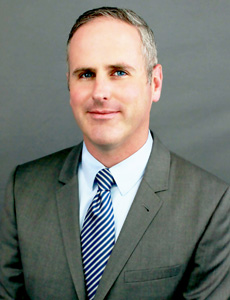Health Care Costs
Corporations Unite to Lower Health Care Costs

A new agreement to share health care coverage information among some of the largest U.S. corporations – a sweeping effort to reduce surging medical costs – may potentially alter how administration service providers, such as brokers and pharmacy benefit managers, operate.
Known as the Health Transformation Alliance (HTA), the collective seeks to improve how companies provide health coverage and make the current multilayered supply chain more efficient.
The 20 companies involved include Macy’s Inc., American Express Co., and The Coca-Cola Co. Between them, they spend more than $14 billion annually on combined health care for 4 million people, including employees, their dependents and retirees, according to the HTA website.
The HTA’s first pilot projects are expected to launch in 2017 and will help employees obtain more affordable prescription medications. The rest of the major initiatives are planned for 2018 or later. The alliance has not yet indicated how they expect to reduce costs for prescriptions.
“This isn’t necessarily a totally new concept; it’s one that is timely and probably pretty smart,” said Chris Duncan, chief growth officer at EPIC Insurance Brokers and Consultants.
Duncan was a casualty analyst at Ford Motor Co. in the mid-1980s when the automotive company formed an alliance with dozens of other large corporations to help solve the U.S. liability insurance crisis. The companies in the alliance eventually formed XL Group plc. and ACE to provide product liability and D&O coverage.
“This is a continuation of what large employers have been doing for some time; consolidating purchasing powers and business driver insights,” Duncan said.
“I think it’s doable to bind together 20 companies and probably get a better deal than having the PBM in the middle.”
Since the inititative is still in preliminary stages, it is uncertain what changes the collaboration may bring to the corporations or the administration companies serving them.
“We are looking for innovators in the supply chain, the pioneers who want to break from the status quo and work with the group of pioneering employers who want to build a better way.” — The Health Transformation Alliance
“We hope to hear from the supply chain about how it can work with us to recast a system that everyone agrees needs to be improved,” the HTA said.
“We are looking for innovators in the supply chain, the pioneers who want to break from the status quo and work with the group of pioneering employers who want to build a better way.”
Suppliers are also trying to understand how the alliance may change their roles.
“This could be a revenue generating opportunity for Aon, but it will likely take revenue out of the market for smaller brokerage firms,” said Alex Michon, senior vice president with Aon Risk Solutions.
If corporations decide to cut out insurance buying, they may save broker commissions and that could reduce fees, Michon said. But large brokers usually play a dual role in helping obtain insurance plans as well as offering risk and compliance consulting services.
“With the right data and right analysis you could do some interesting things,” said EPIC’s Duncan.
For example, the companies could negotiate a national disease management program for diabetes or cardiac care.
“Literally 20 percent of your employee population will drive 70 percent of your costs so you can concentrate that intervention in a fewer number of partner or vendor intervention points,” Duncan said.
According to its website htahealth.com, the HTA plans to “facilitate contracting opportunities between members of the Alliance and service providers.”
Members will then contract directly with the service provider. The Alliance said it will not receive funds from these contracts or bear legal responsibility for the service provider’s performance under the contract.
“We have considerable work to do, and we expect this will take years to fully implement,” said
Bill Allen, the CHRO of Macy’s Inc. said, in announcing the Alliance.
“This is a major undertaking for each of us, but if we don’t do it now, the growth in health care costs will overwhelm all of us. We are proud to be pioneers who seek to transform and improve the way health care benefits are provided for millions of working Americans.”
“There’s a crisis in medical care and the biggest companies are bringing together their purchasing power to find solutions,” Duncan said.
“I wish them a whole lot of luck because what we’re doing now just isn’t working. We should all watch them carefully.”
The members of the Alliance are:
American Express Co.
American Water
BNSF Railway Co.
Brunswick Corp.
Caterpillar Inc.
The Coca-Cola Co.
E.I. du Pont de Nemours & Co.
HCA Inc.
The Hartford Financial Services Group Inc.
IBM Corp. Ingersoll Rand
International Paper Co.
Lincoln Financial Group
Macy’s Inc.
Marriott International Inc.
NextEra Energy Inc.
Pitney Bowes Inc.
Shell Oil Co.
Verizon Communications Inc.
Weyerhaeuser Co.












